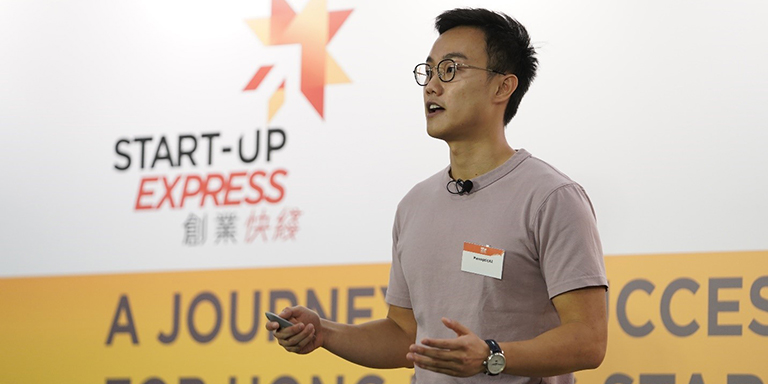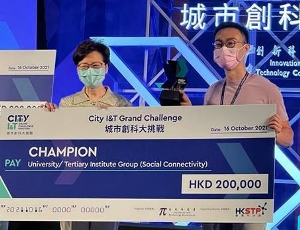
A Hong Kong start-up is seeking to use artificial intelligence (AI) to enable the diagnostic methods of both Western medicine and traditional Chinese medicine (TCM) to be applied on smartphones, hoping to benefit as many patients and health professionals as possible.
PanopticAI’s state-of-the-art technology is well positioned to be used in telemedicine, a sector with tremendous market potential in the Guangdong-Hong Kong-Macao Greater Bay Area and Southeast Asia.
Since its establishment last August, the award-winning technology start-up has been growing continuously with the popularity of its first product – a smart fever-screening solution which is used at the airport and government buildings in Hong Kong. Now, the firm is also seeing great potential in electronic health monitoring services, given a wider application of these technologies in everyday life and the continual expansion of the smartphone market.
Develop and diversify
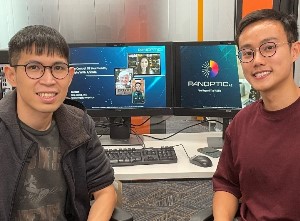
“In recent years, smart watches with health monitoring functions have become more common. This reflects an increased health consciousness in the new digital age, but there is not yet a universal product that is hugely popular,” co-founder and CEO Kyle Wong said.
“With PanopticAI’s strong foundation in AI-enabled smart technology, we have developed visual scanning algorithms using everyday smartphone cameras that can quantify captured footage and reveal the user’s physiological data such as heart rate, breathing frequency, oxygen saturation, blood pressure, stress index and even skin-care parameters,” he explained.
Put simply, the app allows physiological signals to be picked up and analysed by the video camera, which functions as a photodetector capturing subtle changes in blood volume under the skin. Such data can provide insights into the user’s physiological health.
The technology can also be integrated into telemedicine platforms, allowing the group to diversify into this sector with huge growth potential.
“At present, the system allows the diagnostic methods of Western medicine to be applied on smartphones,” he said.
Tech and tradition
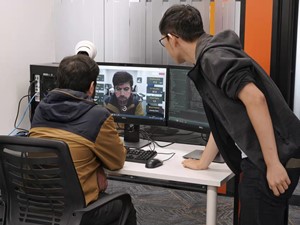
“We are working to enable it to collect key wellness indications using the diagnostic methods of TCM as well, especially facial inspection, which is our current focus. Later, we also hope to cover the other three TCM diagnostic methods -- listening and smelling, enquiring, and pulse reading.”
“As Hong Kong is a multi-cultural hub blessed with an East-meets-West culture it’s natural we want to combine the characteristics of TCM assessments with AI and bring health monitoring to a new level.”
Smart health monitoring
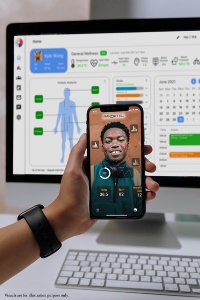
When benchmarking against United States Food and Drug Administration-approved medical devices, the system can achieve over 98% accuracy in giving Western medicine physiological data. Meanwhile, PanopticAI is engaging with TCM clinics to collect patients’ facial data to offer the same accuracy for TCM parameters.
Targeting the business-to-business (B2B) market, the company expects to soft-launch the system in the first quarter of 2022, starting with partnerships with local doctors, medical institutions, wellness and elderly care service providers and insurance companies.
The start-up plans to bring the health monitoring system to Southeast Asia and the Greater Bay Area in the third quarter of 2022, when it is also expected to establish its first branch office in Mainland China to engage and collaborate with the major mainland industry players.
These developments will spearhead the company global expansion, including in in Europe and North America.
“We are preparing to raise US$1 million to US$2 million in December for business expansion. We plan to become a publicly listed on the Hong Kong Stock Exchange within three to four years,” said Mr Wong.
Tech-savvy
The CEO seems to be a perfect fit for his role. Having majored in biomedical engineering at King’s College London in the United Kingdom, he specialised in bioinformatics and machine learning when reading his PhD in Bioengineering at the Hong Kong University of Science and Technology (HKUST).
Mr Wong had already started working with the local government on improving temperature screening at traveller arrival points in 2018, well before the COVID-19 pandemic. He later joined a team led by HKUST School of Engineering Associate Dean Professor Richard So, which successfully developed a more accurate smart fever-screening system that was installed at six border control crossings, including the airport, shortly after the pandemic broke out in January last year.
When various schools, clinics and care institutions expressed interests in acquiring the system, Mr Wong decided it was time for the team to start their own company and run the business.
“We came from the same research team at HKUST and believed that our technology can significantly contribute to the aging Hong Kong community, especially elderly homes that are often short-staffed and receive many visitors. We squeezed time to set up this company in between doing our doctoral dissertations and research,” recalled Mr Wong. The HKUST-owned temperature monitoring technology was licensed to PanopticAI.
When the start-up was established in August last year, it sought assistance from local programmes such the Technology Start-up Support Scheme for Universities (TSSSU) and HKUST Dream Builders Funds.
With that, combined with sales to schools, care institutions, government buildings and the airport, PanopticAI was able to break even within the first month of operation. The firm has now installed more than 50 sets of the system across Hong Kong, providing smart fever-screening for close to four million people.
Start-up support
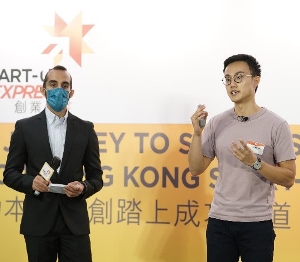
With the success of the temperature control technology, PanopticAI proceeded to develop the AI health monitoring system, which made the firm a winner in a pitching contest held as part of this year’s Start-up Express entrepreneurship development programme, organised by the Hong Kong Trade Development Council’s (HKTDC).
The award brings the company exposure to a range of HKTDC global events, including the Belt and Road Summit where a major German medical group with a telemedicine platform has initiated a discussion to deploy PanopticAI’s health monitoring technology.
Start-up Express prizes also include participation in the Asia Summit on Global Health in Hong Kong in November and the CES 2022 in Las Vegas, where the firm is invited to exhibit its AL technology. The chief executive is confident that the company will experience record growth in the coming years with these new business opportunities.
With support from the HKTDC’s Frankfurt Office, PanopticAI also took part in the AsiaBerlin Summit in October 2021, exploring collaborations with other start-ups and investors.
“We are innovating next-generation camera-based health monitoring solutions to help shape the future of the digital healthcare sector,” concluded Mr Wong.
“Simply put, it’s all about helping people. Knowing that, we all sleep better at night.”
Related link
Panoptic AI
